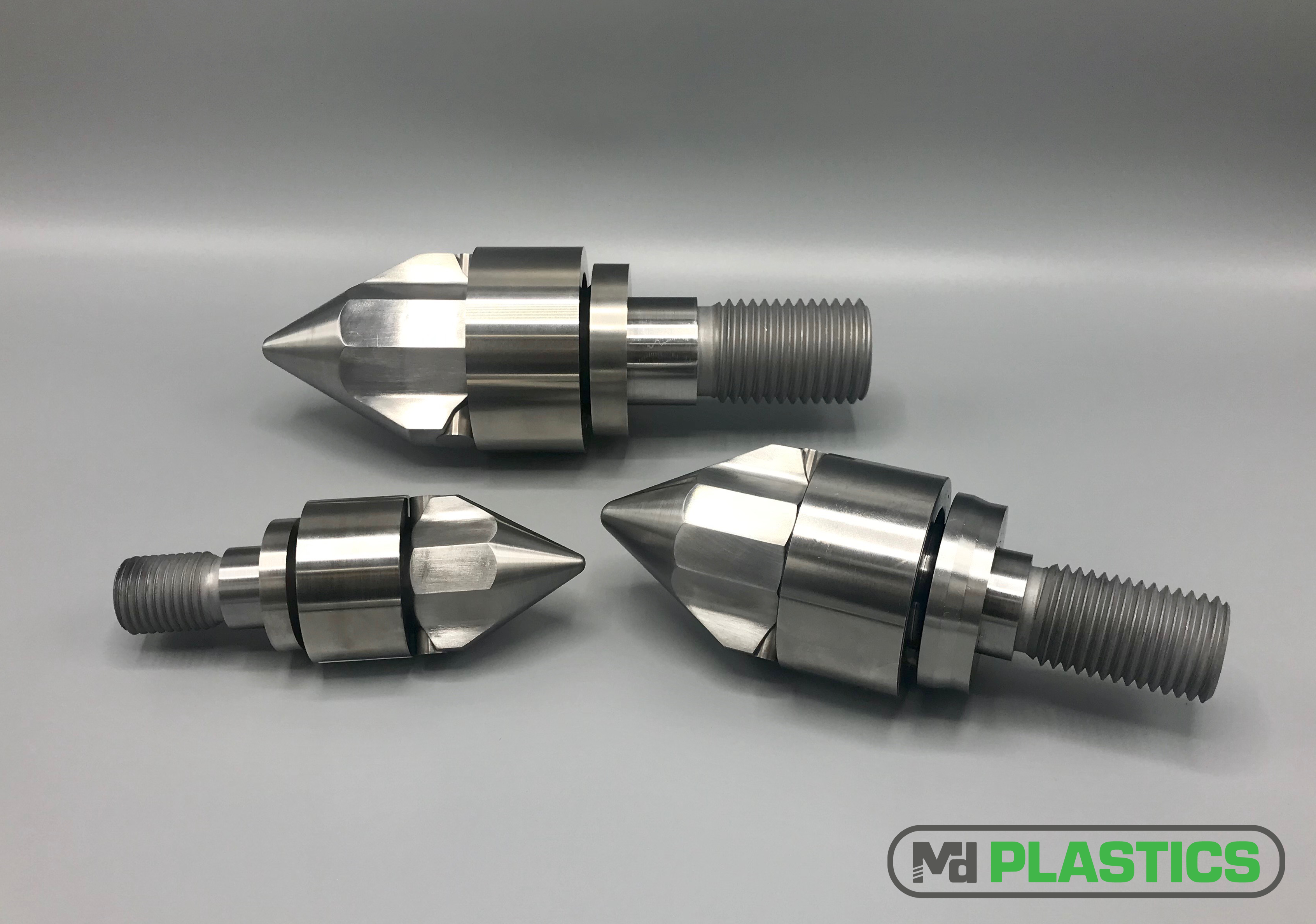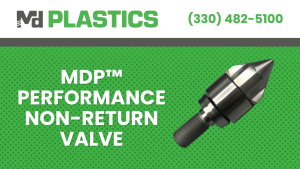Plastics manufacturers constantly face the dual challenge of maximizing production throughput while minimizing defects. These obstacles can stem from inefficiencies in processing equipment, variations in raw materials, and suboptimal operational settings. However, advancements in screw and barrel technology, strategic material selection, and refined process optimization techniques can significantly enhance throughput and quality.
Common Challenges in Plastics Manufacturing
Plastics manufacturing involves complex processes that require precise control over temperature, pressure, and material flow. Despite technological advancements, manufacturers often grapple with the following issues:
- Production Inefficiencies: Poorly designed screws and barrels can lead to slow cycle times, insufficient melt uniformity, and excessive energy consumption.
- High Defect Rates: Inconsistent melt quality, inadequate mixing, and material degradation result in defects like short shots, sink marks, and warping.
- Material Incompatibility: Selecting the wrong material for a specific application can compromise the mechanical properties of the final product.
- Frequent Equipment Downtime: Wear and tear on screws and barrels lead to unscheduled maintenance, reducing overall productivity.
- Excessive Scrap and Rework: High reject rates due to poor processing parameters increase material waste and reduce profitability.
How to Increase Throughput Without Compromising Quality
Achieving higher throughput without sacrificing quality requires a multi-faceted approach. Key areas to focus on include upgrading plasticating components, optimizing processing conditions, and ensuring proper material selection.
The Role of Melt Uniformity in Consistent Production
Melt uniformity is one of the most critical factors in injection molding and extrusion. When polymers are not properly homogenized, variations in viscosity occur, leading to inconsistent part quality and processing inefficiencies. Improving melt uniformity can be achieved by:
- Utilizing Advanced Screw Designs: High-performance screws with barrier, mixing, or shear-enhancing sections improve melt consistency and homogeneity.
- Optimizing Barrel Temperature Zones: Properly controlled heating zones prevent material degradation and maintain stable flow properties.
- Enhancing Shear and Compression Ratios: Adjusting screw compression ratios can optimize melt viscosity, leading to smoother material flow and reduced cycle times.
How Material Selection Impacts Manufacturing Efficiency
Choosing the right material is paramount in plastics manufacturing, affecting processing ease, mechanical properties, and overall part quality. To enhance efficiency:
- Select Materials with Consistent Melt Flow Index (MFI): Variations in MFI lead to unpredictable processing conditions. Working with a reputable supplier ensures batch consistency.
- Use Additives Wisely: Glass fibers, stabilizers, and impact modifiers influence material flow and mechanical performance. Understanding their behavior in the process is essential.
- Consider Recycled and Bio-based Polymers: Sustainable materials are becoming more popular but require careful processing adjustments to maintain product integrity.
Reducing Defects Through Advanced Screw Design
Defect reduction is crucial for maintaining profitability and meeting stringent industry standards. Screw design innovations play a significant role in achieving this goal.
Key Process Adjustments to Reduce Scrap and Rework
Even with the best equipment and materials, improper process settings can lead to defects. Manufacturers should focus on:
- Dialing in Optimal Screw Speed and Back Pressure: These factors influence melt homogeneity and air entrapment, reducing voids and inconsistencies.
- Implementing Precision Temperature Control: Overheating or underheating the material can lead to burning, gassing, and poor melt flow, resulting in defective parts.
- Utilizing Real-Time Monitoring Systems: Advanced sensors and software solutions provide real-time data on pressure, temperature, and fill rates, allowing for instant process adjustments.
The Impact of Screw and Barrel Wear on Defect Rates
Worn-out screws and barrels lead to inefficient melting and inconsistent shot sizes, increasing reject rates. To mitigate this:
- Invest in High-Wear-Resistant Materials: Bimetallic barrels and hardened screws extend component lifespan.
- Implement Routine Maintenance Checks: Regular inspections and proactive replacements prevent unexpected failures.
- Upgrade to Smart Screws with Self-Adjusting Features: Emerging technology in adaptive screw design enables better performance over prolonged use.
Partner with Md Plastics for Optimized Solutions
Plastics manufacturers striving to enhance throughput and reduce defects must take a holistic approach that includes innovative screw and barrel technology, strategic material selection, and process optimization. Since 1999, Md Plastics has been committed to helping injection molders improve profitability through cutting-edge plasticating components and advanced processing technologies. With decades of experience and a disciplined approach to problem-solving, we deliver tailored solutions that enhance efficiency and part quality.
Contact us today to learn more about how we can transform your manufacturing operations!




